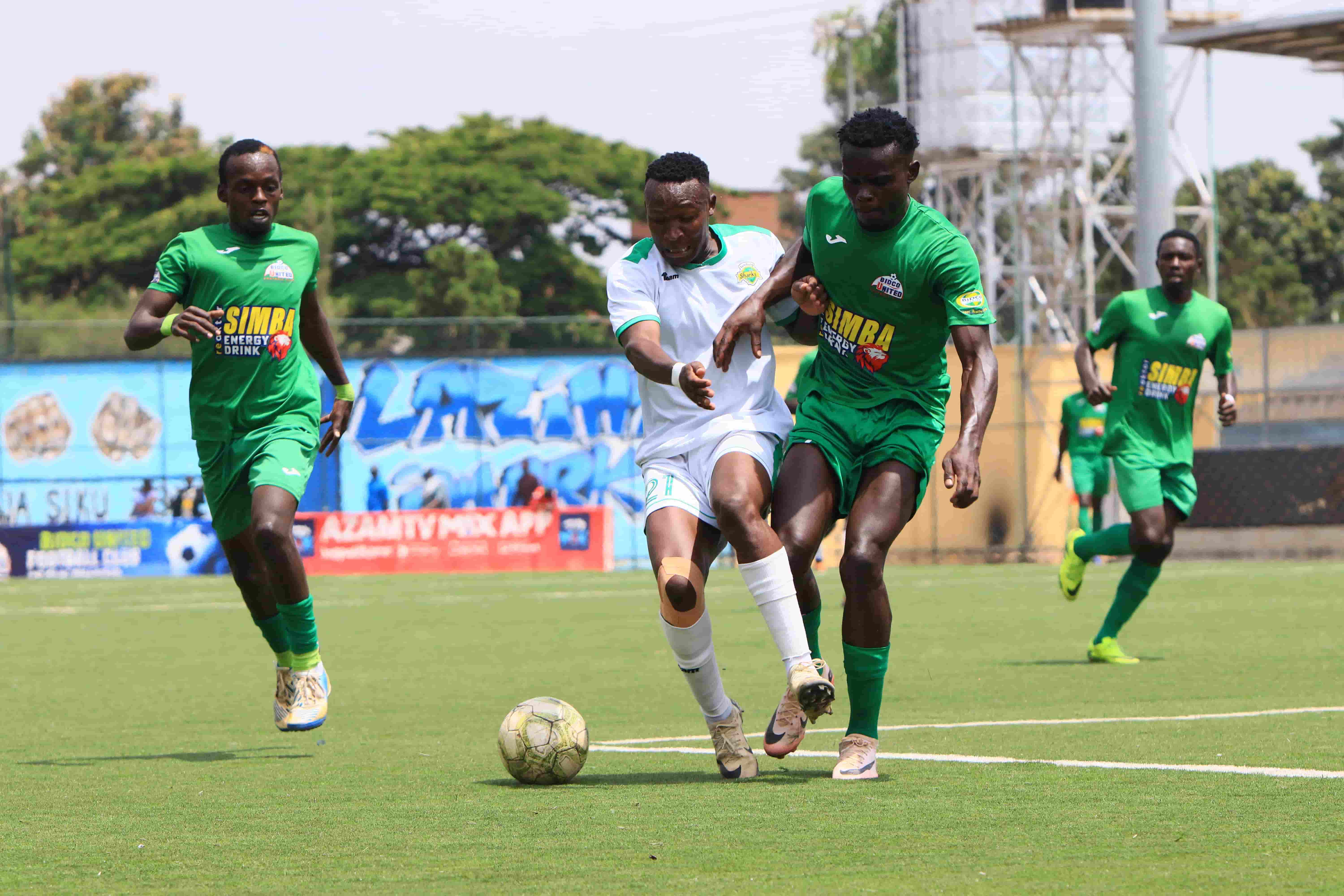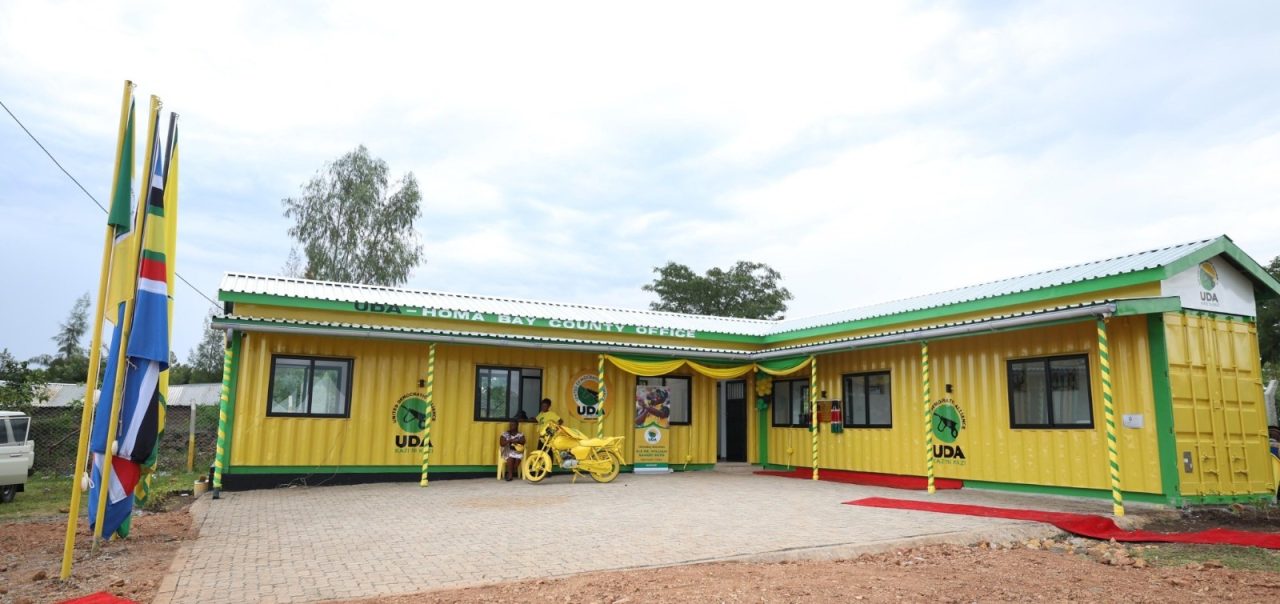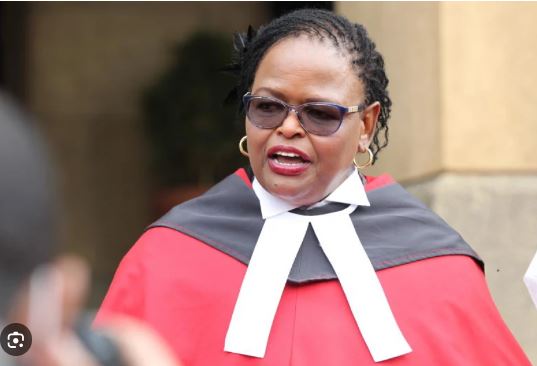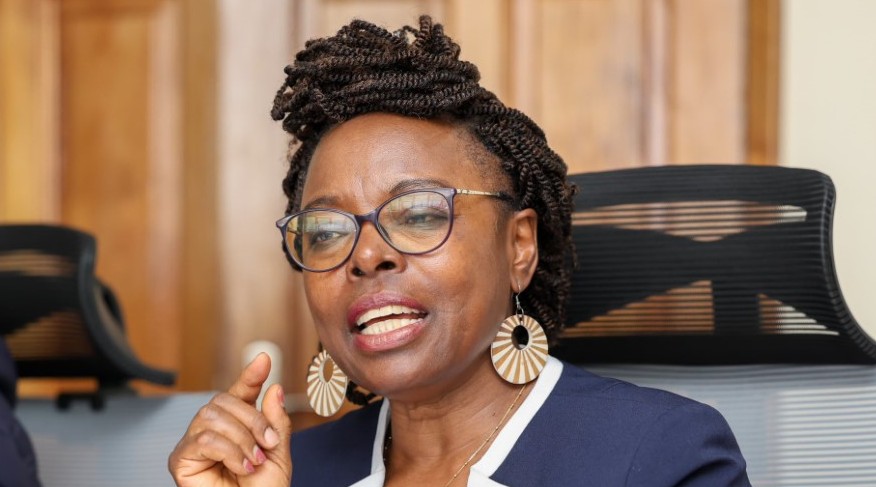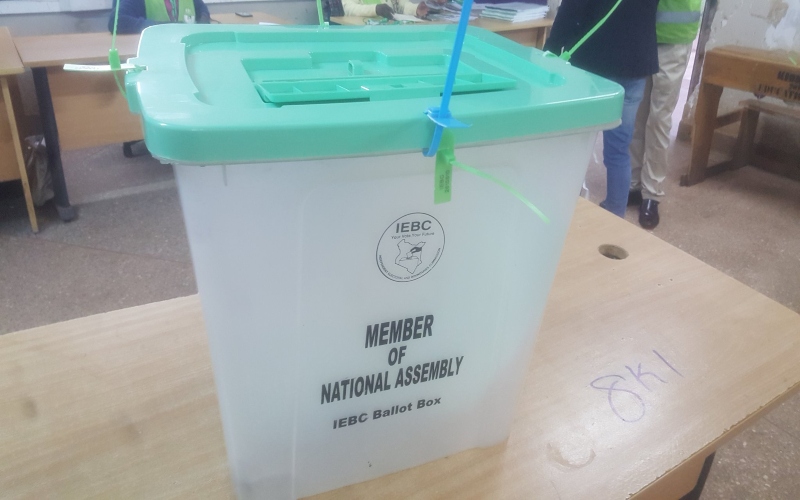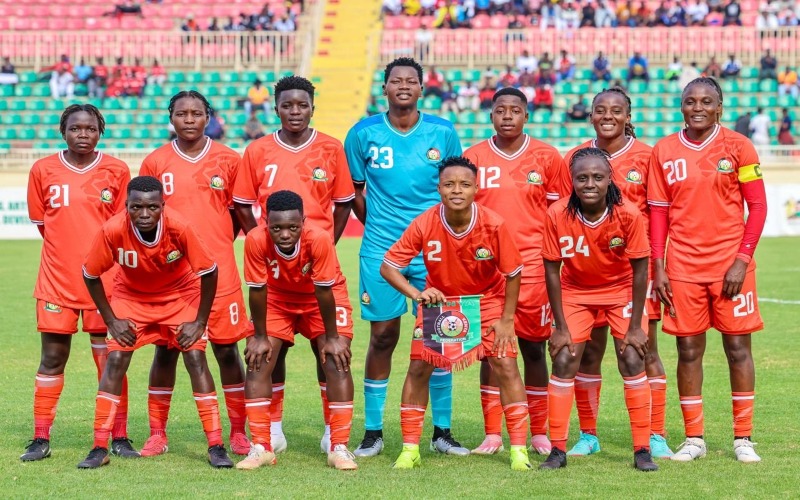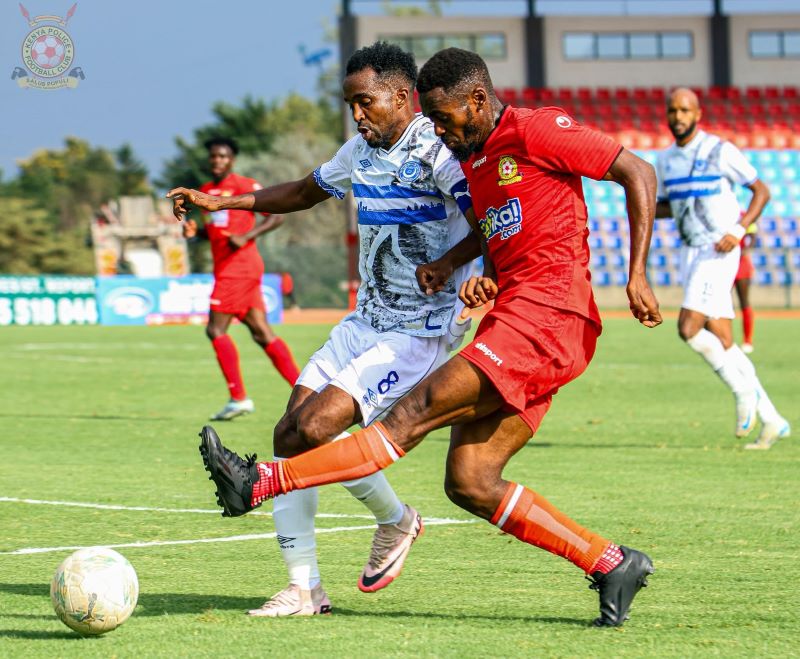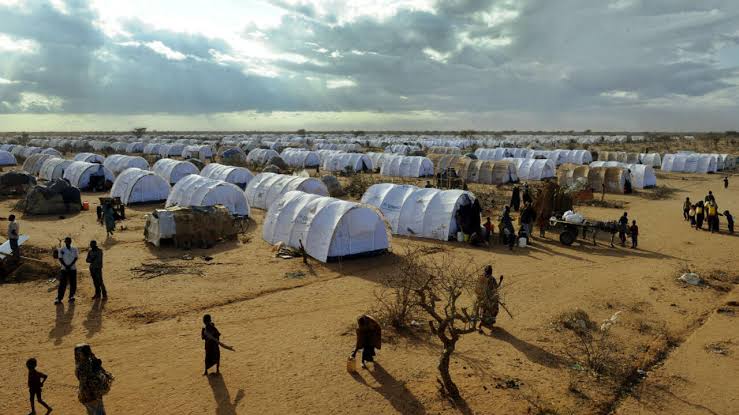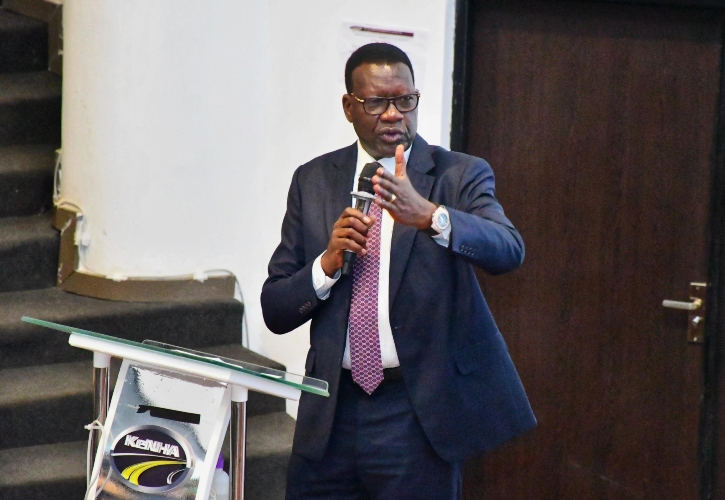Living with Follicular Lymphoma: Evans Machera's resilience through diagnosis and treatment

As Evans rebuilds his life post-treatment, he embraces his new role as a counsellor, knowing that his experience is a beacon of hope for others facing similar battles.
For three months, Evans Machera cycled through hospital visits, weighed down by persistent chest pain. Despite undergoing a battery of tests that returned inconclusive, his unease deepened.
When he finally received the diagnosis—follicular lymphoma, grade one—a wave of relief washed over him. At least, he thought, he finally had answers. Sitting in the doctor’s office, he managed a smile through the fear, though the word "cancer" lingered ominously in his mind.
More To Read
- SHA accused of ignoring law in hiring as NHIF workers left out
- Union warns of court action if SHA fails to absorb former NHIF workers
- From NHIF to SHA: Kenya's cancer patients pay the price for a broken health system
- SHA fraud: Trio in court for falsifying medical claims
- MPs grill SHA over Sh91m legal costs, disputed Karen land and stalled NHIF projects
- SHA begins review of cancer benefit package after patients’ protest
Follicular lymphoma, a type of cancer that originates in the lymphatic system and affects B cells, generally grows slowly and often doesn’t require immediate treatment. However, it’s considered incurable, which means that while it can be managed, it is prone to returning after remission.
A Nairobi resident and lawyer, Evans had enjoyed good health until 2019, when troubling chest pains began to disrupt his daily life. By December, even the simplest tasks—like carrying breakfast—required assistance. It was only after multiple hospital visits that he learnt fluid had accumulated in his chest, causing the pain.
“The longer the tests dragged on, the weaker I became; I lost so much weight that it was down to 40 kilogrammes from 73 kilogrammes," he recalls.
His significant weight loss sparked whispers among his neighbours, who speculated about his condition. “Some went so far as to claim I had been bewitched or had HIV. One neighbour even approached me to confess their thoughts on the matter,” he said.
Once diagnosed, Evans gathered the courage to inform his brother, who then shared the news with the family. “When my friends learnt what I was going through, they organised prayers. My brothers were understandably upset but immediately stepped in to support me.”
The pain and discomfort became a routine part of life, with stinging sensations and profound fatigue his constant companions. “Chemotherapy was daunting, but I knew I had to face it head-on. I embraced the challenge, even as my weight fluctuated. Eating became difficult, but I made a conscious effort to nourish myself.”
The physical toll was stark. “Sometimes, my veins would disappear because of the weight loss. I went from 73 to 40 kilogrammes; it was both me and not me at the same time. I didn’t dwell on it; I accepted my reality. I had been warned that the fourth round of chemotherapy might be overwhelming, but I remained focused on the treatment. My skin darkened despite my light complexion, and my hair fell out. It was a lot to handle, but I was determined to persevere.”
During this time, family and friends often offered herbal remedies. “While they meant well, I learnt to be patient and accepted my situation during this challenging time,” he said.
His illness weighed on his family, especially his wife. Thankfully, his brother helped fill the financial gaps when he was unable to work. “Although it was tough for my wife, she found some comfort in knowing I had support. It was particularly challenging during COVID when many people lost their jobs, but we struggled through it together.”
 Evans stands strong, determined to advocate for early diagnosis and support for others facing cancer, having come through his own journey with faith and resilience. (Photo: Charity Kilei)
Evans stands strong, determined to advocate for early diagnosis and support for others facing cancer, having come through his own journey with faith and resilience. (Photo: Charity Kilei)Evans stands strong, determined to advocate for early diagnosis and support for others facing cancer, having come through his own journey with faith and resilience. (Photo: Charity Kilei)
Evans reflected on the societal pressures that often prevent men from seeking help. “Most men are the breadwinners, and the fear of how their families will cope can weigh heavily. Worries about missed opportunities and financial strain can also hold them back from seeking treatment.”
Support groups like the Kilele Health Association became invaluable in his recovery. “Joining Kilele and other support groups has been invaluable in managing my post-cancer journey. Over time, I developed emotional challenges, especially as my next scans approached. Even when I was feeling healthy, I felt tense. I reached out to my brothers, and they calmed me down.”
Despite the anxiety that surrounded each test, Evans remained hopeful, focusing on the possibility of positive results. “To manage my mind, I limited my focus on negativity and ignored distractions that weighed me down. I found joy in watching races and engaging with sports, which helped shift my focus away from pain and discomfort, and exercising with my sister-in-law and brother, who accommodated me during my treatment.”
Walks with his brother soon became part of his routine. “Together we gradually built up to four kilometres a day. It became part of my routine,” he said.
Now, after two PET scans, he is cancer-free and takes only painkillers to manage the residual discomfort from where the fluid was drained. He continues to attend regular check-ups. “Four years post-treatment, I’m determined to live a long life, inspired by friends who have also thrived after cancer.”
His advice to other men is simple and clear: “Speak out, seek treatment, and overcome stigma. Your voice can inspire others to seek help. I’ve met many men in similar situations, and I even take them to the hospital.”
He points out that while many men agree to start treatment, some fall back into denial. “Men need to rise. You’re not alone; you can be a survivor. It’s not about ego—if you’re sick, accept it and ask for help.”
Life has changed profoundly for Evans since his cancer journey. Though he took a break from his legal career, he has since returned to his profession and is committed to raising awareness for cancer locally and internationally. “Share your journey; it’s essential to live one day at a time. If there are no quick fixes, patience is key.”
Faith, Evans says, played a crucial role in his recovery. “I genuinely believe that faith can create miracles. The fear of the unknown often causes people to give up, but I chose to remain hopeful. Men should embrace their vulnerability and seek help; this is just a phase and has nothing to do with ego. If you’re sick, accept it and get treatment. Focus on healing and don’t hesitate to ask for support. My advice to men is to speak up, seek treatment, and challenge the stigma. Your willingness to share can help someone else in need. I've met many men along my journey, and I even take some to the hospital.”
He also joined Amani Counselling, where he is training to become a counsellor, recognising the growing need for support in the cancer community. “The need for support in the cancer space is growing, and I want to help others navigate their journeys.”
 Evans Muchera, a cancer survivor from Nairobi, advises men to embrace treatment and take one day at a time in their recovery journey. (Photo: Charity Kilei)
Evans Muchera, a cancer survivor from Nairobi, advises men to embrace treatment and take one day at a time in their recovery journey. (Photo: Charity Kilei)Evans Muchero a cancer survivor from Nairobi advises men to embrace treatment and take one day at a time in their recovery journey. (Photo: Charity Kilei)
According to The Lancet, follicular lymphoma is the second most common lymphoma in high-income countries, comprising nearly 20% of all non-Hodgkin lymphomas. Its causes are unclear, though one common genetic change, t(14;18)(q32;q21), leads to the overproduction of the BCL-2 protein, which aids cell survival.
Symptoms of follicular lymphoma include swollen lymph nodes, fatigue, weight loss, night sweats, fever, and unexplained itching.
Treatment options depend on the stage and symptoms and may include:
- Watchful Waiting for early, asymptomatic cases.
- Chemotherapy for advanced cases.
- Immunotherapy to bolster the immune system, such as monoclonal antibodies targeting CD20.
- Radiation therapy for localised disease.
- Stem cell transplant for relapsed cases.
Reflecting on his journey, Evans is resolute. “Men need to step up. You’re not the only one facing this; you can join the ranks of survivors. It’s not about your ego if you’re unwell; accept it and reach out for help. Don’t be afraid to ask for assistance.”
As Evans rebuilds his life post-treatment, he embraces his new role as a counsellor, knowing that his experience is a beacon of hope for others facing similar battles.
Top Stories Today
